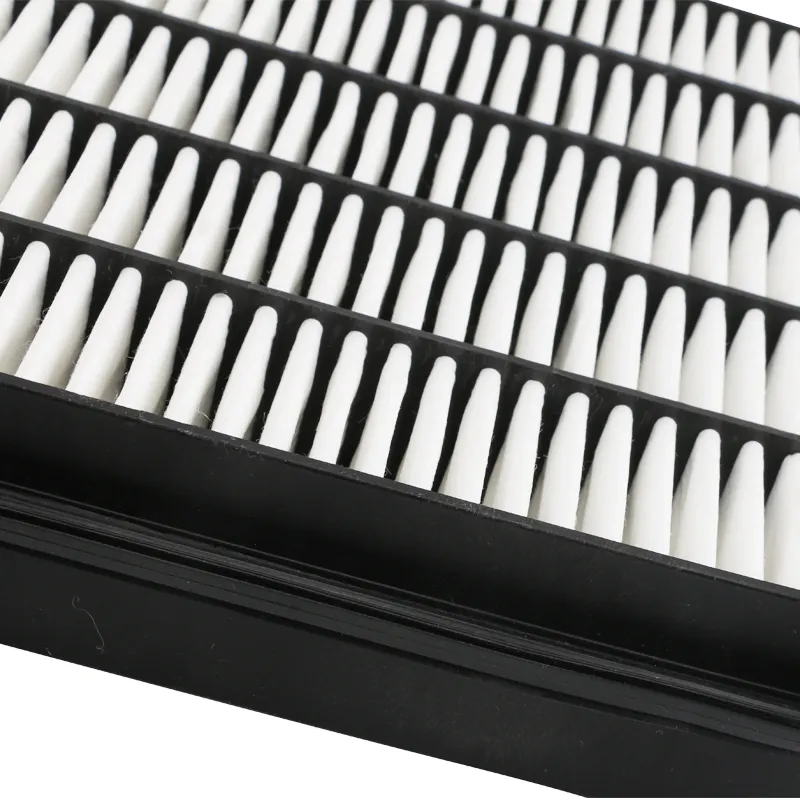Oct . 13, 2024 21:04 Back to list
Air Filtration Solutions for Improved Indoor Air Quality in China
The Importance of Air Filters in China Enhancing Air Quality and Health
As one of the world's most populous countries, China faces significant challenges regarding air quality. Rapid urbanization, industrial emissions, and an increasing number of vehicles have contributed to severe pollution problems in many cities. Consequently, the importance of air filters has become a critical focus for both public health and environmental sustainability. This article explores the role of air filters in improving air quality, their types, and their significance in the Chinese context.
The Air Quality Crisis in China
Air pollution in China has reached alarming levels, particularly in major cities like Beijing, Shanghai, and Guangzhou. The notorious PM2.5 particulate matter, which poses serious health risks, often exceeds safe limits. The detrimental effects of such pollution are evident; respiratory diseases, cardiovascular conditions, and even developmental issues in children are linked to long-term exposure to polluted air. For these reasons, air filtration systems have emerged as an essential line of defense against harmful airborne pollutants.
Types of Air Filters
There are several types of air filters available in the market, each designed to combat specific pollutants
1. HEPA Filters High-Efficiency Particulate Air (HEPA) filters are highly effective in trapping small particles, including dust, pollen, and smoke. They can capture at least 99.97% of particles as small as 0.3 microns, making them ideal for homes and offices in polluted urban areas.
2. Activated Carbon Filters These filters are proficient at adsorbing gases and odors. They are particularly useful in urban settings where vehicle emissions and industrial gases are prevalent. Activated carbon filters work by trapping harmful chemicals and pollutants, thus improving the air quality indoors.
3. Electrostatic Filters These filters use an electric charge to attract and capture particles. They can be efficient in filtering out fine particles and allergens but require regular cleaning and maintenance to maintain their effectiveness.
4. UV Air Purifiers Combining air filtration with ultraviolet light, these systems not only trap particles but also neutralize bacteria and viruses. This feature is especially crucial in densely populated areas where viruses can spread rapidly.
5. Ionizers These devices release negatively charged ions that attach to positively charged particles (like dust and allergens), causing them to clump together and settle out of the air. However, they may produce ozone, which can be harmful.
china air filter

Benefits of Air Filters
Air filters have numerous benefits that contribute to healthier living environments
1. Improved Health With the ability to significantly reduce airborne pollutants, air filters help lower the risk of respiratory diseases, asthma attacks, and allergies. They are increasingly recognized as vital tools for maintaining public health.
2. Enhanced Comfort Clean air can improve overall comfort in living and working spaces. This is particularly important in urban areas where outdoor air quality may deter outdoor activities.
3. Increased Productivity Many studies have shown that improved air quality can enhance cognitive function and productivity. By reducing pollutants, employers can create healthier workplaces that promote better performance among employees.
4. Long-Term Cost Savings Investing in quality air filtration systems can lead to long-term cost savings. By reducing the health risks associated with air pollution, fewer medical visits and health-related expenses are likely.
The Future of Air Filtration in China
As awareness of air pollution and its impacts continues to grow, the demand for effective air filtration solutions in China is expected to rise. The government has begun implementing policies aimed at reducing emissions and promoting cleaner energy sources, but these solutions will take time to manifest fully.
In recent years, the market for air purifiers has grown exponentially, with many households opting for advanced filtration systems. Innovations in technology, such as smart air purifiers that monitor air quality and adjust filtration levels accordingly, are also becoming popular.
Conclusion
Air filters play an indispensable role in mitigating the effects of one of China's most pressing environmental issues. By improving indoor air quality, these systems promote health, comfort, and productivity among the population. As China continues to navigate its path toward sustainability, fostering the use of effective air filtration will undoubtedly be an essential step in ensuring a healthier and cleaner future for its citizens. With ongoing innovations and an increased focus on air quality, there is hope for a breath of fresh air in China’s polluted cities.
-
Toyota Corolla Hatchback Cabin Air Filter – High Efficiency & Easy Installation
NewsJul.08,2025
-
Premium Canister Fuel Filter Supplier High Quality Oil Filtration Solutions
NewsJul.08,2025
-
Premium Car Filter Oil Solutions Leading Car Oil Filter Exporter Hyundai Car Oil Filter Exporters
NewsJul.08,2025
-
Buy 17x21x1 Air Filter – Improve Air Quality & HVAC Efficiency Affordable Air & Cabin Air Filter Cost
NewsJul.07,2025
-
High-Performance Filter Element Fuel – Durable, Efficient & Cost-Effective Solutions
NewsJul.07,2025
-
High-Quality Engine Filter and Cabin Filter for Superior Airflow Affordable Cabin and Engine Air Filter Cost
NewsJul.07,2025


